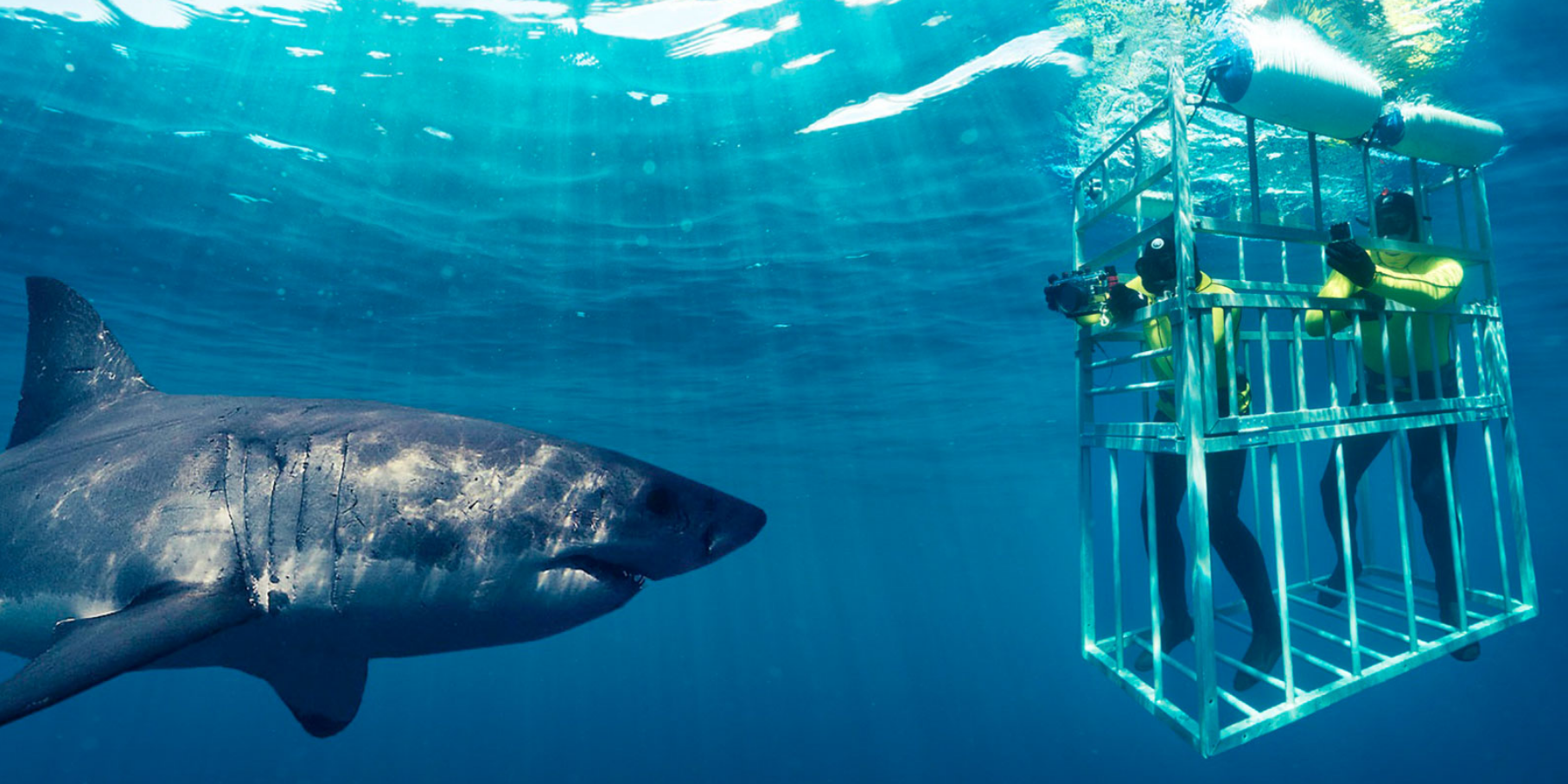The New Zealand Court of Appeal today ruled shark cage diving is an offense under the Wildlife Act, a move being welcomed by many, and ridiculed by others. But it raises an interesting question – Should shark cage diving be banned globally, despite its benefits?

Shark Diving has boomed in many countries, but many people are starting to question the activity
Shark cage diving involves operators first attracting sharks to an area through the use of large volumes of chum or bait. Divers or swimmers are then immersed in a cage (or sometimes in the open), and they get what many would consider the experience of a lifetime when sharks come around. I’ve been on the fence for a long time on this. Shark diving has many positive results. Firstly it gives people an appreciation of nature at its most impressive. It’s hard not to appreciate a great white when you see one in the wild for the first time. Secondly, it has countries earning an income from an animal, and this can help a government see merits in protecting them. Small conservation gains made in poor countries (and a few wealthy ones) are often because certain species have become tourism assets.
But there are some negative sides to Shark Cage Diving. Firstly, there is little doubt that it does start to change shark behavior. Tourism boats become a source for food. But can a shark tell the difference between a tourist boat and a divers boat? In New Zealand’s case, the strongest opposition to Shark Diving came from the Paua (abalone) industry, who felt sharks were increasingly interested in the small chase boats used by divers.
The changes in behavior also impacts the food chain. Great whites for example have various seal species as their principal food source. Once sharks start pursuing tourism boats, they are not prowling the coastline looking for seals, and while many might have sympathy for the seals, it sees us messing with the food chain. Our obligation is to leave these animals be. Let the sharks chase the seals and keep their numbers in check. Predation of seals is a key element in removing sick, old or unhealthy animals. Seals are especially prone to mass dye offs, as their gregarious nature sees diseases spread quickly through a population. Thus removal of sick animals is is crucial to maintaining a vibrant population.
There are times as well, when sharks are attracted to an areas because of all the chum, but there are no big bits of meat to feed upon. They have wasted energy in getting to an area, but failed in getting any substantial nutrition. Admittedly this is not always the case, but it does happen. And should we be taking large volumes of tuna from the Pacific, dispersing it thousands of miles away, to simply provide a few people with some thrills? Our fish stocks are under enough pressure as it is.
My thoughts are maybe other countries should follow New Zealand’s lead and also ban shark cage diving where baits or chum is involved. I’m sure many of you will disagree, so feel free to comment or argue your case.
Captain Pete Bethune
